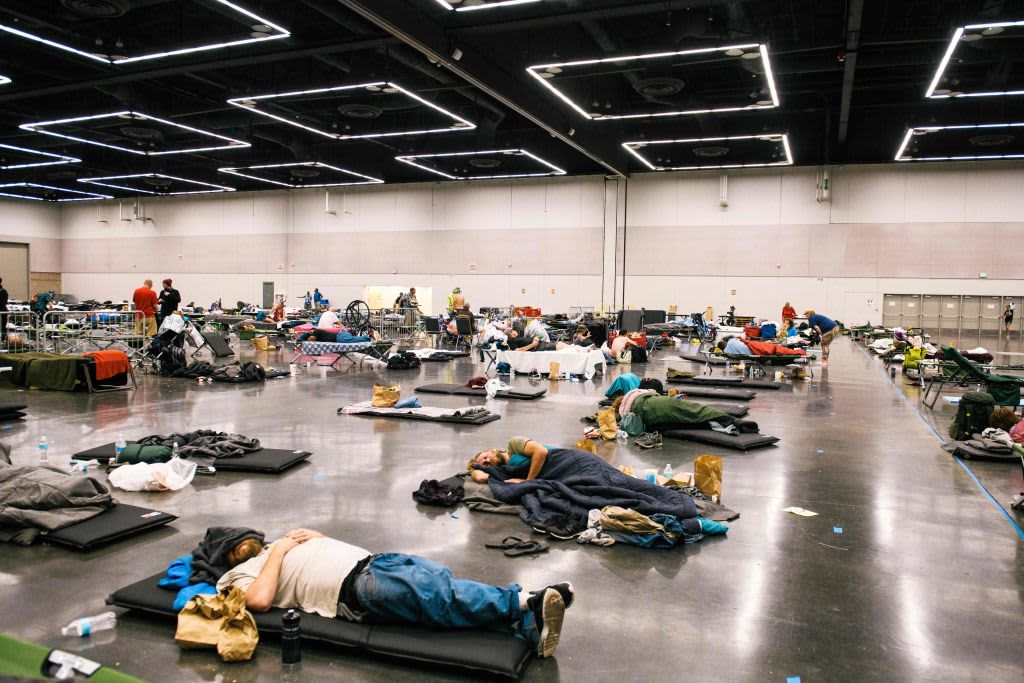
People rest at the Oregon Convention Center cooling station in Oregon, Portland on June 28, 2021, as a heatwave moves over much of the United States.
Kathryn Elsesser | AFP | Getty Images
President Joe Biden on Wednesday hosted a virtual meeting with Western governors to discuss the drought and heat waves in the U.S. that are growing worse with climate change, and how the country can better prepare for what could be a record-setting wildfire season.
The meeting comes as a devastating heat wave grips the Pacific Northwest, leaving thousands of people without power, and while most of the U.S. West grapples with the worst drought in the last two decades. The conditions have already triggered wildfires in California, Nevada and Washington early in the season.
“The threat of western wildfires this year is as severe as it’s ever been,” Biden said during the meeting. “Right now, we have to act and act fast.”
“The truth is we’re playing catch up,” the president said. “This is an area that’s been under-resourced.”
Attendees included Vice President Kamala Harris as well as Democratic governors from Oregon, California, New Mexico, Nevada, Washington and Colorado and Republican governors from Utah and Wyoming. Cabinet members and business leaders also attended.
California, which is grappling with depleted reservoir levels and snowpack, will have its largest firefighting force in history working on the ground during peak fire season. The state has called on residents to limit electricity use in order to avoid blackouts in anticipation of fires after experiencing its worst season on record last year.
The president said the government will provide a $37 million grant for wildfire mitigation projects in Sonoma County.
Biden also said that he is increasing wages for federal firefighters to $15 an hour, adding that the boost is “still not enough.” The wage increase follows the president’s meeting last with week with the Federal Emergency Management Agency chief on the government’s disaster preparedness.
The actions come as climate change fuels more frequent and severe weather disasters and scientists urge immediate action to slash global greenhouse emissions in order to avoid the most devastating effects of global warming.
The president announced in May that FEMA would double the funding available to help cities and states prepare for extreme weather disasters, from $500 million last to year to $1 billion this year.
Still, Biden’s recent bipartisan infrastructure agreement omitted measures to combat climate change, boost spending to address worsening disasters and transition the country to a clean energy economy. Democratic lawmakers must now take up those measures through a separate reconciliation bill.



